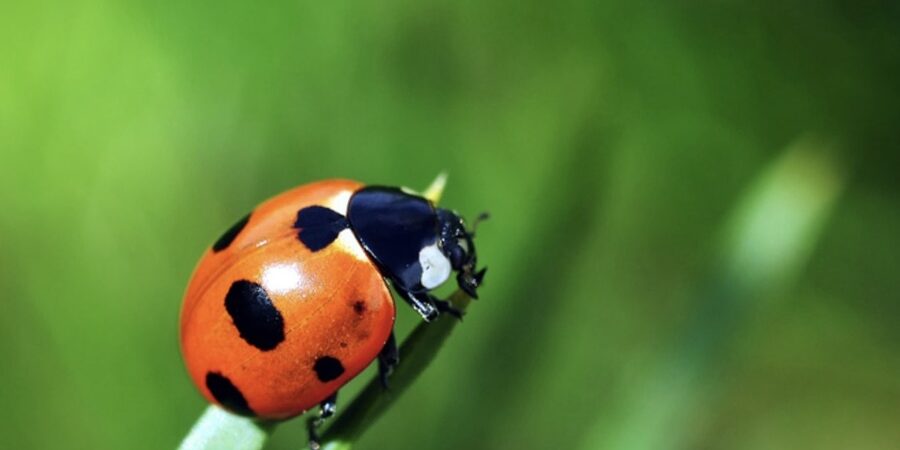While insects found inside the house can be a pest, insects in your garden can prove to be quite beneficial. Certain insects are helpful to your garden and can protect your plants from true pests. Keeping a pesticide-free, organic garden will keep these little critters happy and your garden healthy. Here’s a list of six insects that are sure to maintain a cheerful and harmonious garden:
1. Honeybees
Honeybees improve the pollination of tree fruits, berries, and crops of the cucumber family in addition to providing delicious honey. Bees that can collect pollen and nectar from a diverse group of plants receive better nutrition than those restricted to specific field crops. Young honeybees are fed a protein-rich diet based on pollen so early-blooming fruits, clovers, poppies, and other flowers are important to their ecosystem during this time. After about a week, a young honeybee’s diet changes to sugary flower nectar. Annual and perennials that bloom mid to late summer help satisfy this need.
Also read: Benefits of Backyard Beekeeping
2. Spiders
One of the biggest benefits of spiders is that they eat unwanted pests you want to avoid in your flower beds. Spiders work hard to keep pesky populations in check, reducing harmful plant pathogens. Some insects can transfer certain types of fungal and bacterial diseases from plant to plant. To attract spiders to your garden they need good hunting in a diversified garden. This includes perennial herbs that grow into lush bushes, biodegradable mulches, and grass clippings.
3. Solder Beetles
Adult soldier beetles are important late-season pollinators because as they feed on nectar they move pollen from flower to flower. While they eat prey like aphids and other smaller insects, soldier beetles don’t damage plants and are harmless to people. They can easily be attracted to goldenrods, marigolds, sunflowers, and members of the daisy family.
4. Assassin Bugs
Assassin bugs are appropriately named because they often lie in wait and ambush their prey. They are important predators as they feed on several varieties of insect pests. It’s good to note that assassin bugs should be handled with care because they bite when alarmed. Assassin bugs are attracted to lights at night. To attract them try adding solar lights to your garden or plant daisies, dandelions, marigolds, dill, fennel, goldenrod, or even Queen Anne’s lace.
5. Ladybugs
Ladybugs are also excellent pollinators as they feed on flower nectar and pollen. Perhaps the best benefit of ladybugs in your garden is that just one can eat up to 5,000 aphids over its lifetime. They can also aid in ridding your garden of mites, mealybugs, and even powdery mildew. Ladybugs love early-blooming mustard flowers and a diversity of other plants that provide pollen and nectar. Avoid using pesticides to ensure their larvae reaches adulthood.
6. Lacewings
Lastly, lacewings protect your garden from the damaging effects of aphids, cabbage worms, mites, and mealybugs. Growing a diversity of plants will ensure lacewings will have ideal hunting conditions and shelter. Remove row covers during the evening hours so lacewings will have a chance to check for pests. Greenhouses or nursery growers can also purchase lacewings to implement a pest management program in your garden.
Looking for more helpful organic gardening knowledge? Get in touch to see how your friends at Homefront can be of service.











